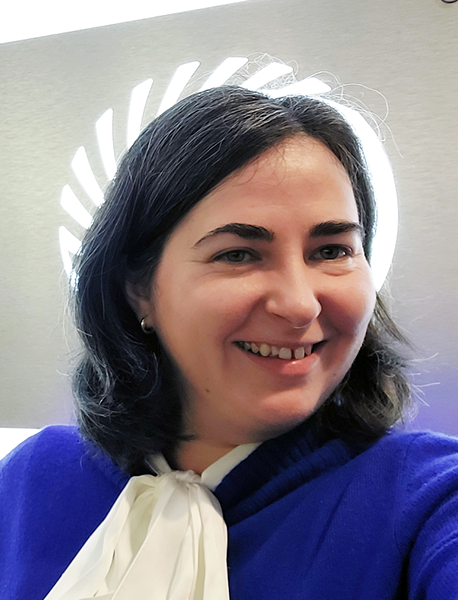Your Oxford Story: Alexandra Tomescu
Alexandra Tomescu
“I want to ensure that all young people have the necessary understanding of science which will allow them to make good decisions in the future, while also inspiring as many young people as possible to go on and study science.”

My Oxford connection started early in my life. I am not a native English speaker, and I learned English using Oxford materials, including the Oxford Learner’s Dictionary. I started using it when I was about 10 and it followed me throughout my secondary education, which is why I have a very strong connection to those great resources that have helped me be where I am today.
I was exposed to science throughout my upbringing. I come from a family where science was a big thing: one of my grandmothers was a science teacher, my Mum a scientist, and my Dad an engineer. For my secondary education, I was in a school that offered a specialized science and computer science track.
I decided to apply for university abroad and because I spoke English, England was a clear choice of destination. When applying, I had one extra option and I decided on a whim to apply to Oxford. I came to interview in December 2003, and I absolutely fell in love with the city. So, I decided to do everything in my power to come back – and to my great surprise, I got in! I was offered a place to study for a degree in Molecular and Cellular Biochemistry, and I stayed on after that for a DPhil in Biological Physics.
During my time at university, I got involved in lots of science engagement — including lots of family fun science — and I absolutely loved it. In 2014, when I saw an opening at OUP to work on science resources for UK education, I applied for it. I didn’t get the UK position, but I was offered a position in the Editorial team in International Education instead. Initially I worked across all our subjects and exam boards. In 2017 I moved into the Publishing team and started working with a deep focus on Science and Maths for the International Baccalaureate (IB). Beginning work on the PISA 2025 Science Framework in 2019, I then became the content lead for the OUP team in 2020.
We launched this framework on 15 June 2023, and what makes PISA unique is that it is not looking to assess the curriculum, it looks at application of knowledge — responding to the latest trends and making a leap of imagination, all to establish: what does a 15-year-old need to be able to do with science in 2025?
I’m very proud of all the projects I’ve been involved in, such as the PISA framework or the recent publishing for IB DP Science. With the resources I commission, I want to ensure that all young people have the necessary understanding of science which will allow them to make good decisions in the future, while also inspiring as many young people as possible to go on and study science. If we think about sustainability, climate change, vaccines – these all involve decisions rooted in science which everyone needs to make in an informed way, so being science literate is more important than ever.
I’m also proud that every time we publish something, we push boundaries in some way; whether it is by creating a different lens to look through on a subject that is well known, or whether we are surfacing more underrepresented categories of scientists or mathematicians, creating opportunities to showcase examples we wouldn’t otherwise have done. Science and society move on, and our publishing moves on too.
It is absolutely fantastic to work with such incredibly passionate authors and colleagues. It is inspiring to be part of a mission-led organization, seeing how everyone is lit up by our mission – it is one of OUP’s main strengths. One of the things that defines why I do what I do and reminds me why I come to work, is the power of what we do to inspire the next generation.

